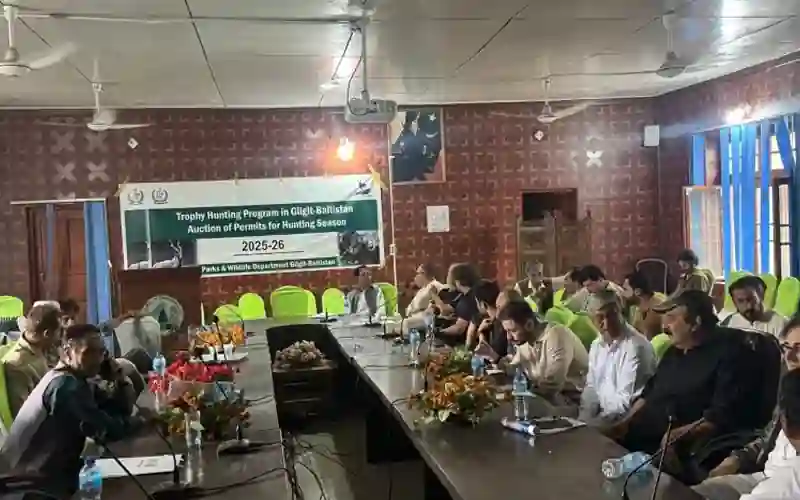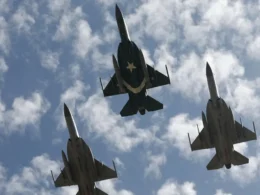The Astore Markhor hunting permit has set a new record, selling for $370,000 or Rs 105 million, as the Gilgit-Baltistan Wildlife and Parks Department auctioned 118 animal permits for the 2025–26 hunting season.
The auction was held at the Forest, Parks, and Wildlife Complex in Gilgit, drawing numerous outfitters and hunters.
Permits auctioned included four Astore Markhors, 100 Himalayan ibex, and 14 blue sheep for trophy hunting enthusiasts.
The highest bid was placed by Raja Farhad Maqpoon, owner of Shikar Safari, for the Nanga Parbat conservancy. The remaining Markhor permits were sold for $286,000 (Rs. 80.57 million), $270,000 (Rs. 76.07 million), and $240,000 (Rs. 67.62 million), respectively.
For Blue Sheep, Muhammad Ali Nagri of Markhor Safaris placed the top bid of $40,000 (Rs. 11.27 million), while also securing a Himalayan ibex permit at $13,000 (Rs. 3.66 million), reflecting the growing international interest in the program.
READ: PIA privatisation expected by November, senate committee told
According to Khadim Abbas, Conservator for Parks and Wildlife, the base price for the Markhor permit rose to $200,000 (Rs. 56.35 million), with Blue Sheep and Ibex permits priced at $30,000 (Rs. 8.45 million) and $10,000 (Rs. 2.82 million), respectively.
Last year’s rates were considerably lower – $150,000 (Rs. 42.26 million) for Markhor, $9,000 (Rs. 2.54 million) for Blue Sheep, and $5,500 (Rs. 1.55 million) for Ibex. The sharp rise in prices has raised concerns among local outfitters and tour operators.
In the 2024–25 season, the highest bid for a Markhor permit stood at $161,000, generating significant revenue for Gilgit-Baltistan’s conservation initiatives and benefiting local communities through the program.
The trophy hunting program, launched in 1990, channels 80 percent of revenue to local communities, funding conservation and development projects while helping protect endangered species such as the Astore Markhor.
However, outfitters warn that sharp fee increases are deterring foreign hunters and reducing participation. Ikram Beg, a Gilgit-based outfitter, said the inflated rates are having “devastating impacts” on local livelihoods and conservation efforts.
Safari Club International Pakistan Chairman Syed Sumsam Ali Bokhari cautioned that rising costs are weakening Pakistan’s competitiveness compared to neighboring countries, including Tajikistan, Nepal, and Central Asian states where rates remain comparatively lower.












